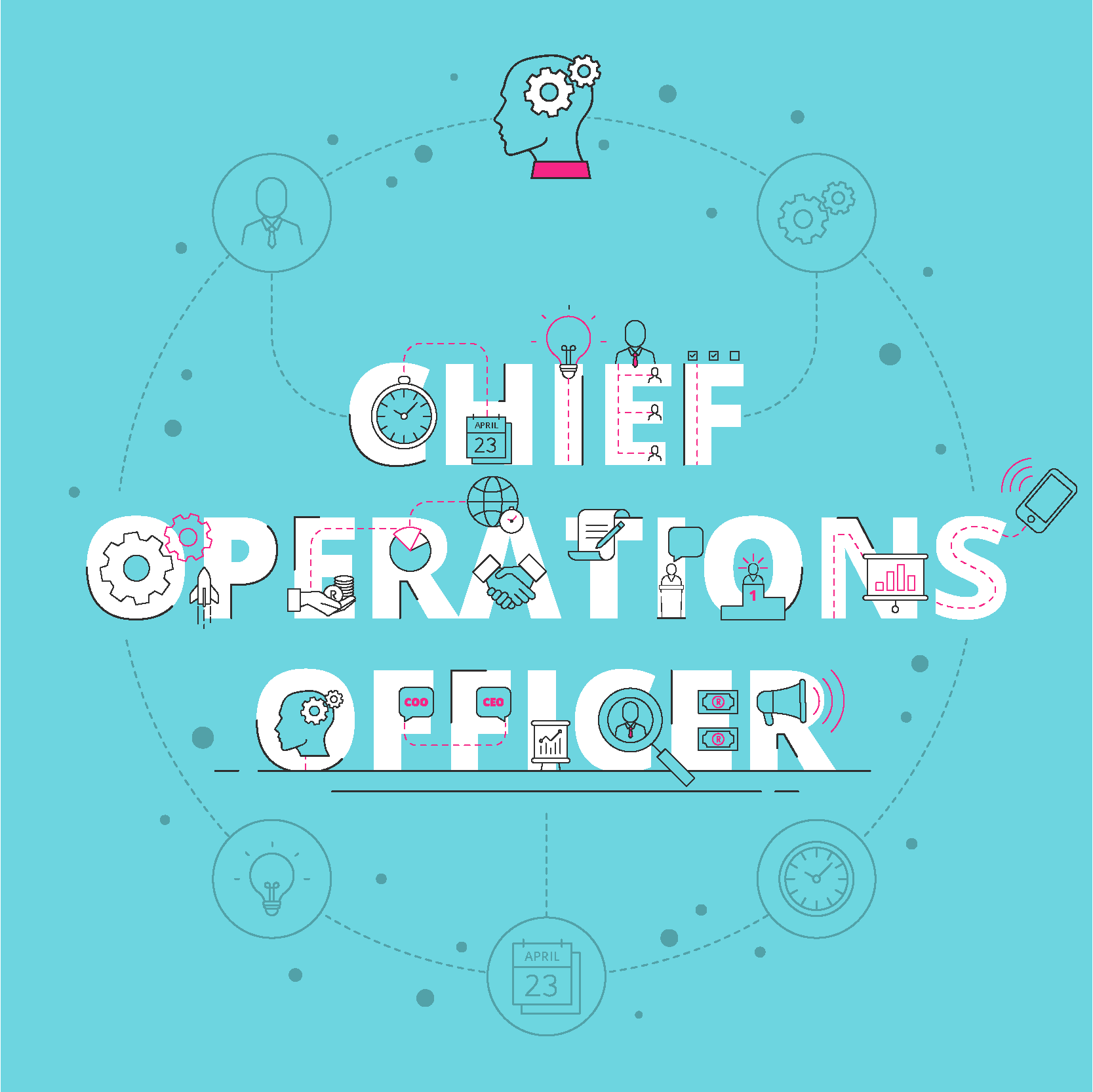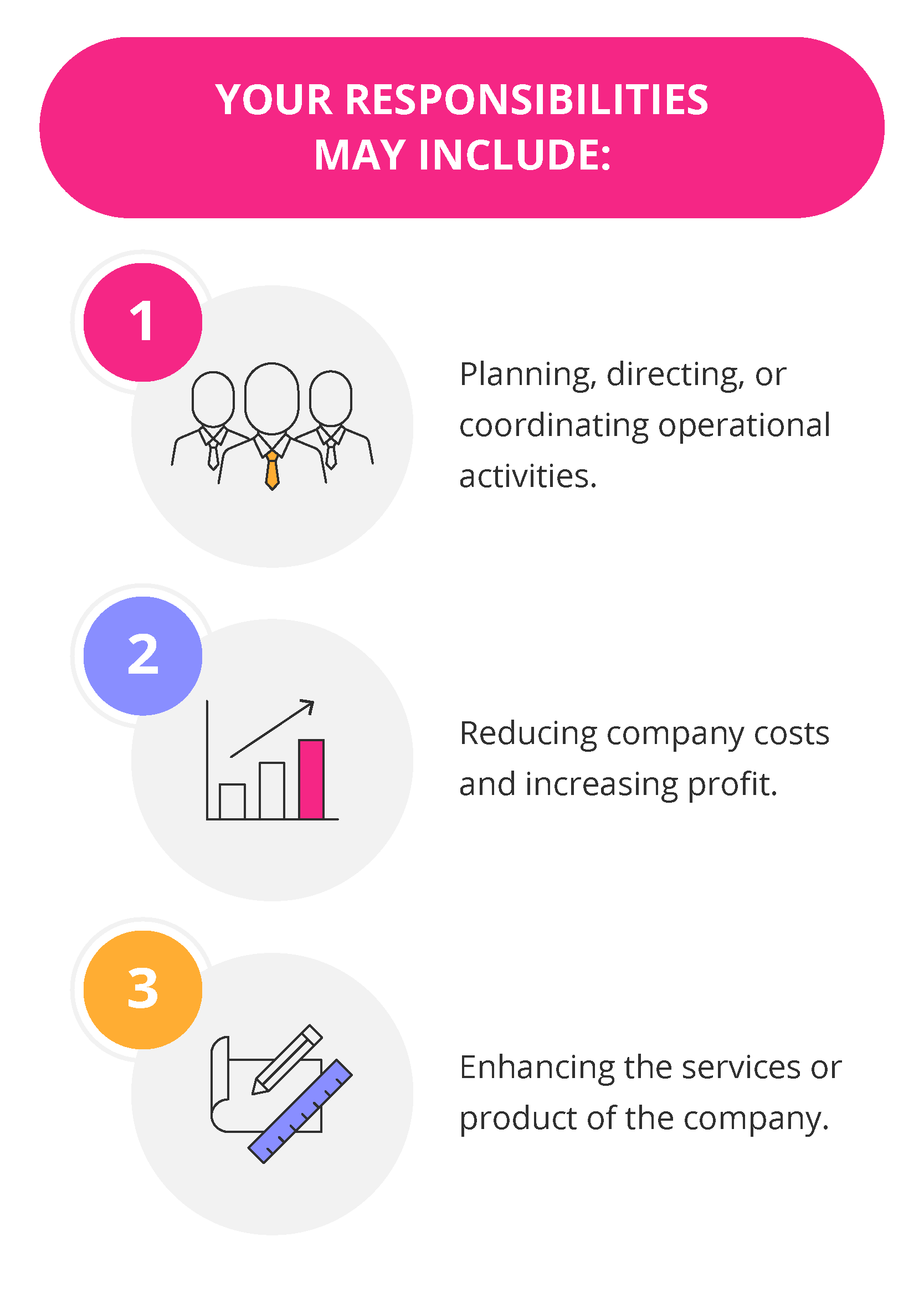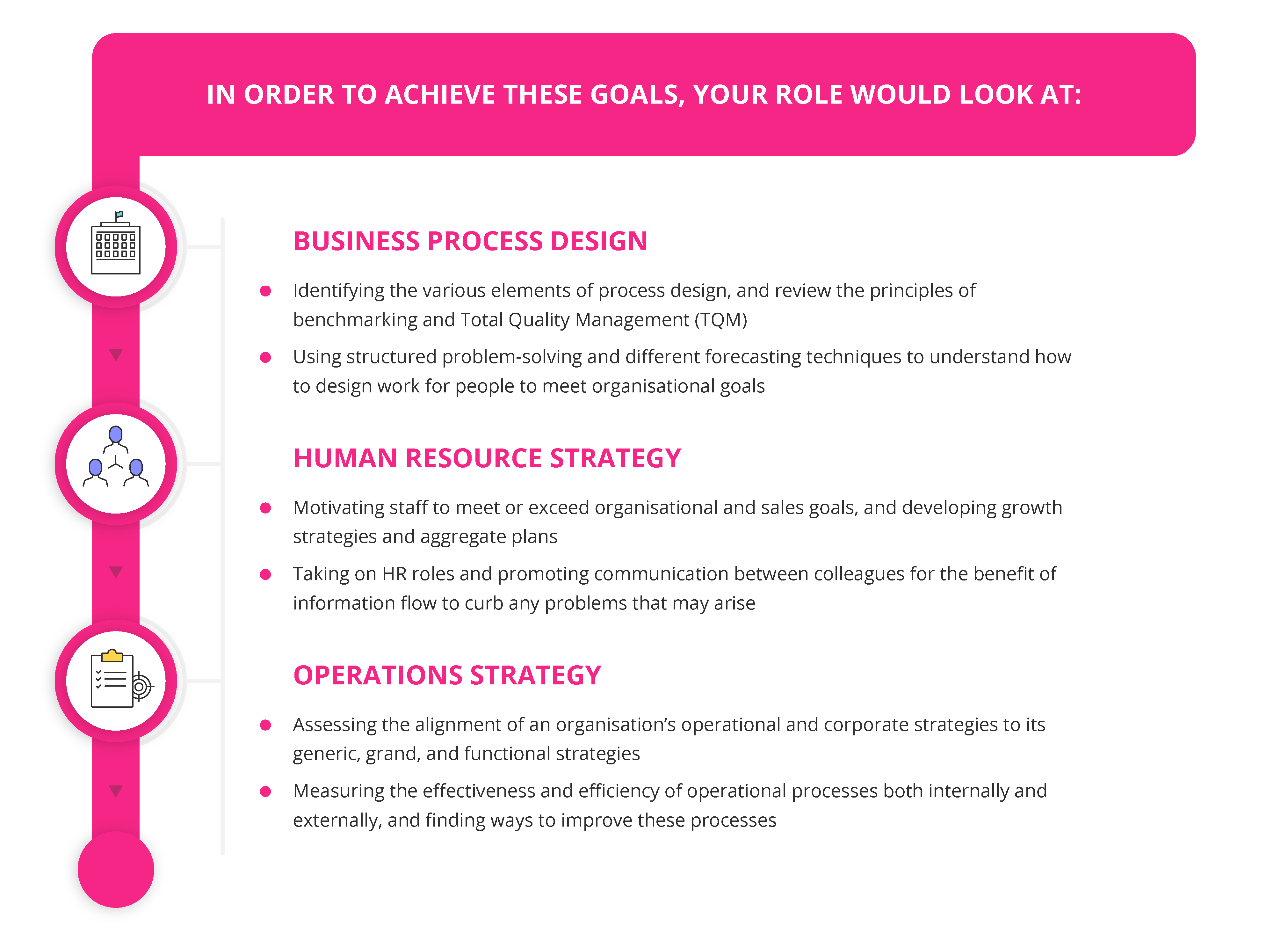How to become a chief operating officer

Being a chief operating officer (COO) is a highly influential role, often second-in-command to the CEO. The COO is typically responsible for overseeing the company’s daily operations, turning the CEO’s long-term vision into actionable, efficient reality.
Given the strategic nature of the position, there are many legitimate paths to the C-suite. Success hinges less on following a rigid checklist and more on gaining the right blend of experience, educational depth, and proven executive capabilities.
What does a chief operating officer do?
The COO is the chief execution executive of a company, translating the high-level business strategy into operational excellence. This executive’s responsibilities are inherently fluid, changing based on the size of the organization, the industry, and the CEO’s style.
The COO’s job is to manage the resources, personnel, and logistics of the organization to ensure all business functions run efficiently and effectively. This often involves:1
- Collaborating with the CEO to drive organizational vision and hiring
- Translating business strategy into actionable steps and implementing organization-wide processes
- Supervising daily operations to drive productivity and cost-effectiveness
- Overseeing financial management efforts like budgeting, cost management, and resource allocation
- Driving change management, and guiding the organization through transitions


In some larger organizations, the COO position is strategically used as a training and testing ground for the next CEO. However, the role is always a pivotal one, requiring extensive experience, critical thinking, and a sharp focus on continuous improvement.
Education to become a COO
There is no single required degree to become a chief operating officer, but a solid educational foundation is a consistent prerequisite. Many COOs hold degrees in business-related fields, which suggests that what matters most is acquiring a deep understanding of business administration, management, and strategic thinking.2
Undergraduate degrees for chief operating officers
A bachelor’s degree in a field like business administration or management can provide foundational knowledge in key areas like finance, marketing, strategic planning, and project management.
For those with an early interest, a major in a field like operations management can offer a specialized base in process optimization, resource management, and supply chain logistics, which are core to the COO role.
Graduate degrees for chief operating officers
Many COOs pursue an advanced degree to deepen their knowledge, which often contributes to the strategic mindset needed at the executive level.
- Master of Business Administration (MBA): An MBA provides a broad, analytical toolkit covering finance, data analysis, strategy, and leadership. This breadth is especially valuable because a COO must oversee various departments, from human resources to manufacturing.
- Specialized master’s degrees: Programs in finance or computer science can also set a strong foundation, but offer a more focused speciality.
- A finance background equips a leader with the knowledge to make strategic financial decisions, understand cash flow, and manage cost and risk.
- A technical degree may be beneficial in a tech-focused or manufacturing industry, offering deep expertise in the intricacies of that sector and positioning the executive to leverage technologies.
The decision often comes down to the individual’s existing career background and the type of company they aspire to lead. A specialized master’s may build on an existing strength, while an MBA often rounds out a professional’s expertise to prepare them for an organization-wide leadership role.
The best educational route is the one that complements your existing career trajectory and builds the skills needed for the specific type of organization you aim to lead.
Upgrading your skills to become a chief operating officer
The COO role demands a powerful hybrid of analytical competency and interpersonal leadership. Some examples of important skills include:3
- Strategic planning and thinking
- Data analysis
- Financial knowledge
- Project management expertise
- People management experience
- Problem solving and resilience
Online operations courses and online leadership courses can be one way to earn some of these skills on your own terms and timeline.
COO certifications
While there is no mandatory professional certification to hold the title, executive education programs and specialized credentials can signal a high level of expertise and commitment to executive operational leadership.
In an era where climate change, resource scarcity, and inequality are no longer fringe issues but central business concerns, the role of a COO must evolve to encompass sustainability. The Business Sustainability Management online short course offers the strategic and operational blueprint to highlight this fit and prepare for the C-suite.
COOs are translators, responsible for taking the C-suite’s strategy and articulating it into measurable, actionable steps across the entire organization. The Communicating for Influence and Impact online short course can help you become a master at this kind of strategic messaging.
A COO’s success rests on their ability to expertly manage strategy, finance, and people — the three pillars the MBA Essentials course dissects. Learn evidence-based approaches to using financial statements as diagnostic tools, managing the supply chain, and fostering a people-first work environment.
For COOs whose role is heavily focused on a specific operational domain, technical certifications can demonstrate a commitment to industry-recognized standards and expertise.
- Certified Supply Chain Professional (CSCP): Offered by the Association for Supply Chain Management (ASCM), this is a globally recognized credential for professionals managing end-to-end supply chain activities.4
- Six Sigma Green Belt or Black Belt: These credentials certify expertise in the Six Sigma methodology, which focuses on data-driven, problem-solving techniques to minimize defects and optimize business processes.5
- Program Management Professional (PgMP): Offered by the Project Management Institute (PMI), this certification is aimed at professionals who manage multiple, coordinated projects (a program) to achieve strategic objectives.6
A progressive career trajectory
The career path to COO is defined by a consistent, progressive accumulation of experience and a verifiable track record in operational and strategic leadership. Most successful COOs spend years rising through the ranks, demonstrating exceptional results at every management level, or are recruited for their deep history of operational excellence.
COOs come from diverse functional backgrounds, which only underscores the fluidity of the role:
- A traditional operations background provides a foundational understanding of process optimization and efficiency.
- A background in finance equips a leader with the crucial financial oversight and risk management skills needed for strategic decisions.
- A background in human resources provides deep expertise in organizational culture, talent management, and conflict resolution.
Seek out roles that provide cross-functional exposure and challenging, high-visibility projects. By consistently focusing on optimizing processes, driving execution, and cultivating the requisite leadership skills, you can strategically position yourself for this demanding executive role.
Related content: What are common operations management tools?
- 1 Elk, S. (Sep, 2024). ‘What is a chief operating officer? COO role explained.’ Retrieved from Forbes.
- 2 (Aug, 2025). ‘How to become a top executive.’ Retrieved from the U.S. Bureau of Labor Statistics.
- 3 Bloomenthal, A. (Oct, 2025). ‘What does a chief operating officer (COO) do? Roles and qualifications.’ Retrieved from Investopedia.
- 4 (Nd). ‘Become a Certified Supply Chain Professional (CSCP).’ Retrieved from the Association for Supply Chain Management. Accessed on October 16, 2025.
- 5 (Nd). ‘Six Sigma belts, executives, and champions.’ Retrieved from the American Society for Quality. Accessed on October 16, 2025.
- 6 (Nd). ‘Program Management Professional (PgMP).’ Retrieved from the Project Management Institute. Accessed on October 16, 2025.

